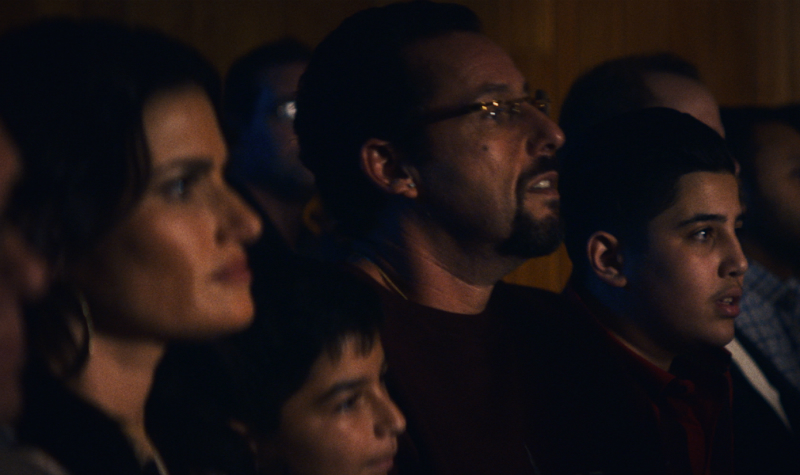If you follow the entertainment world, you’ve probably heard that Adam Sandler was snubbed for a nomination at this year’s Academy Awards. The comic’s latest dramatic foray in Uncut Gems, a 135-minute migraine of a film, in which the Sandman plays an aggressively obnoxious New York jewelry dealer named Howard Ratner hounding to turn a small fortune into a bigger one, generated buzz among critics’ circles about a possible Oscar nod. He won several critics’ association awards, despite a weaker industry PR campaign, which actually makes the difference when it comes to the heavily politicized Oscar-nomination process.
So great was the hype around Uncut Gems that when it was finally released on Canadian Netflix on Jan. 31, I eagerly watched it that weekend, having no idea what to expect.
And here’s the thing: I did not particularly enjoy watching Uncut Gems.
It wasn’t just because my wife hated it (an opinion shared by other women I know, since most of the few women onscreen, most of whom look like models, are inexplicably drawn to Howard, seemingly hypnotized by his dark shades and crooked grin), but also that the film, like the character, is deliberately ugly and annoying.
This grey and gritty depiction of New York, directed by brothers Josh and Benny Safdie, is divided between arrogant opulence and degraded desperation, casting a whole slew of talented actors (including Lakeith Stanfield and newcomer Julia Fox) on the crappier side, inviting audience members to simultaneously root for and harshly judge the lousy fraudsters and cheaters.
The film snowballs into an undeniably engrossing wreck, with moments of jaw-dropping tension as you just wish Howard, this moron, would make smarter decisions. Spoiler alert: he doesn’t. It’s not in his nature. And that’s the point of the film.
As an audience member, I hated Uncut Gems. As a critic, I loved it. That is to say, if someone were to watch this film dispassionately – solely appreciating the directors’ nuanced manipulation of high-speed, dark-lit cinematography and rabid dialogue – they’d find endless joy in analyzing every Easter egg (or Passover afikoman, in keeping with the film’s central Passover scene). Every gaudy set piece and costume choice, exemplified by Howard’s heavy gold rings and neon-lit apartment, prove that nothing is beautiful simply because it costs too much. Indeed, value itself is subjective: the cost of Howard’s prized black opal, a central object of desire in the film, is hotly debated.
READ: THE 21 BEST JEWISH MOVIES OF THE DECADE
But, as I watched Uncut Gems, just because I wanted to watch what I was told was a great film, I was less impressed. It’s a really annoying movie. Audience members with less patience for multiple characters shouting over one another and ultimately driven to do horrible things to each other will probably zone out, not caring enough about the characters to engage in the painful anti-capitalist parable. It’s not a movie that is meant to be enjoyed. It’s meant to be endured.
In that respect, given that the Academy was literally created to celebrate Hollywood fluff, it’s not at all surprising that Oscar voters would deliberately overlook this challenging art-house piece. This is the same group of people who voted Green Book to win best picture last year, a treacly “racism-is-bad” story, over an objectively better and slower film like Roma.
Sandler himself hopefully doesn’t care much about the Oscars – he’s likely resigned himself to being the kind of actor the Academy doesn’t take seriously. And even if he were nominated, let’s be real: Joaquin Phoenix deserved to win, so the whole thing’s kind of moot.
Most audience members, Academy voters included, probably felt like the mobsters in Howard’s vestibule near a pivotal third-act scene. Three men find themselves trapped between bulletproof glass and a heavy steel door, panicked at the thought of being forced to spend hours with this horrible man making bad decisions. For all the film’s metaphors, that one’s probably the most apt.
